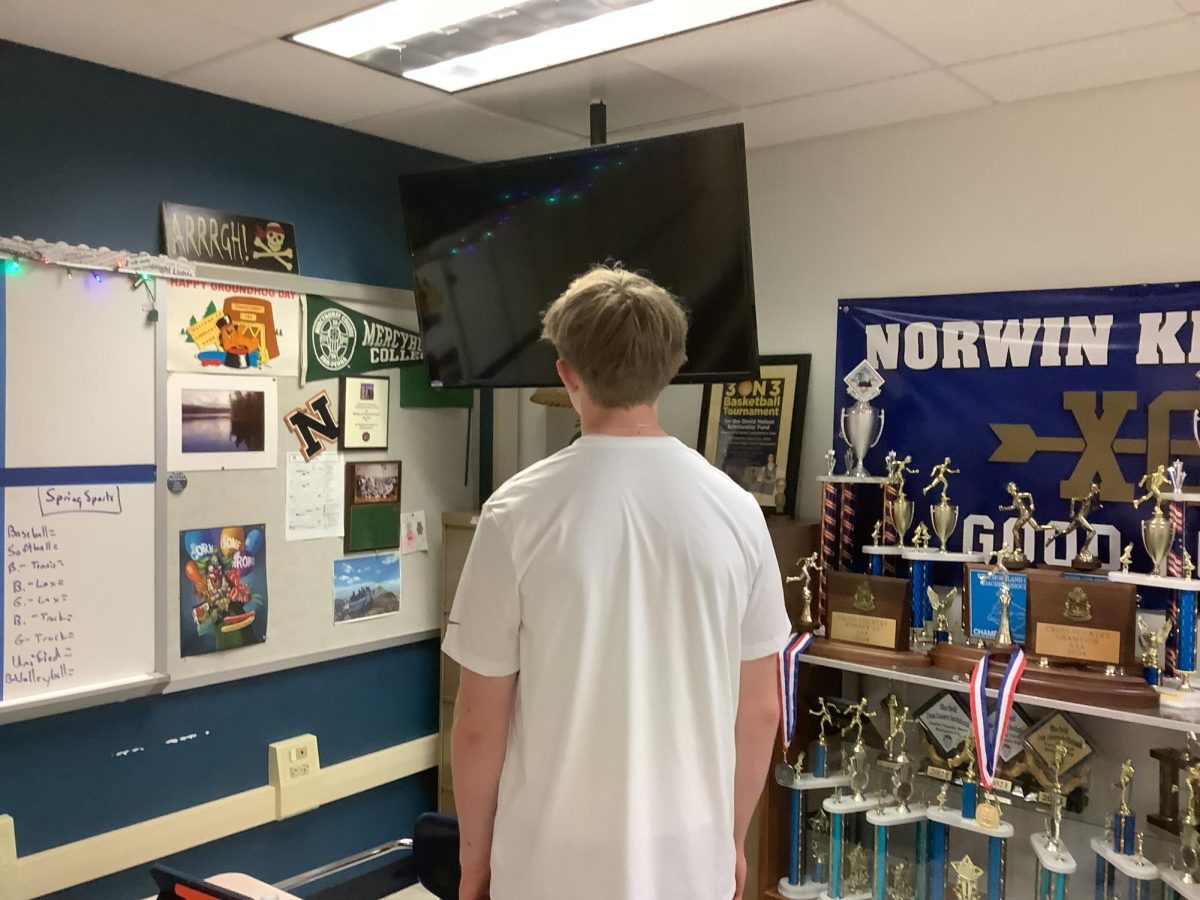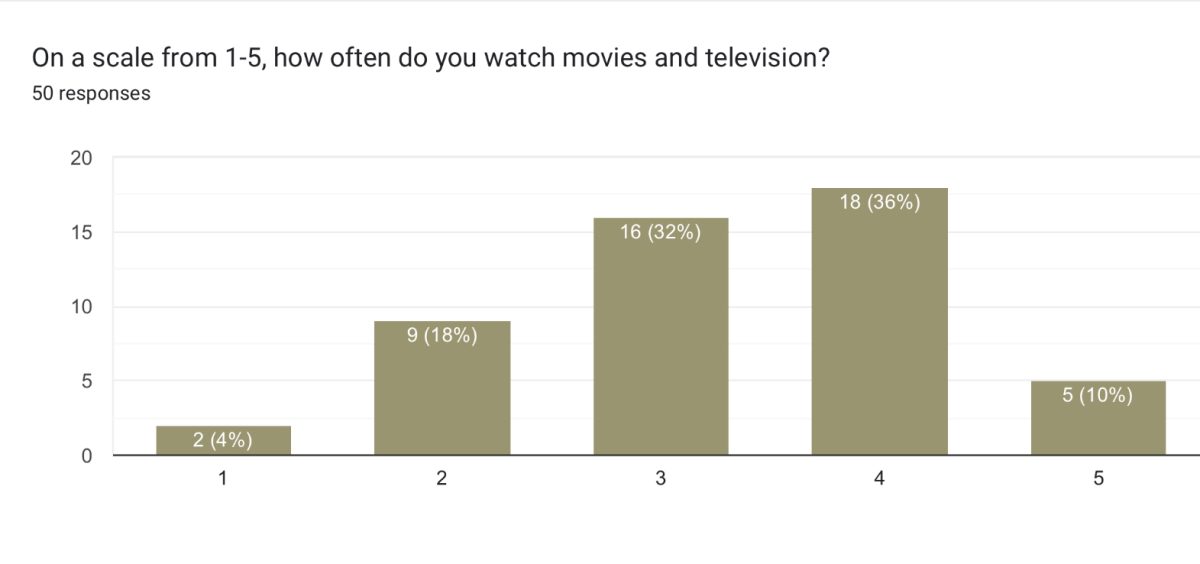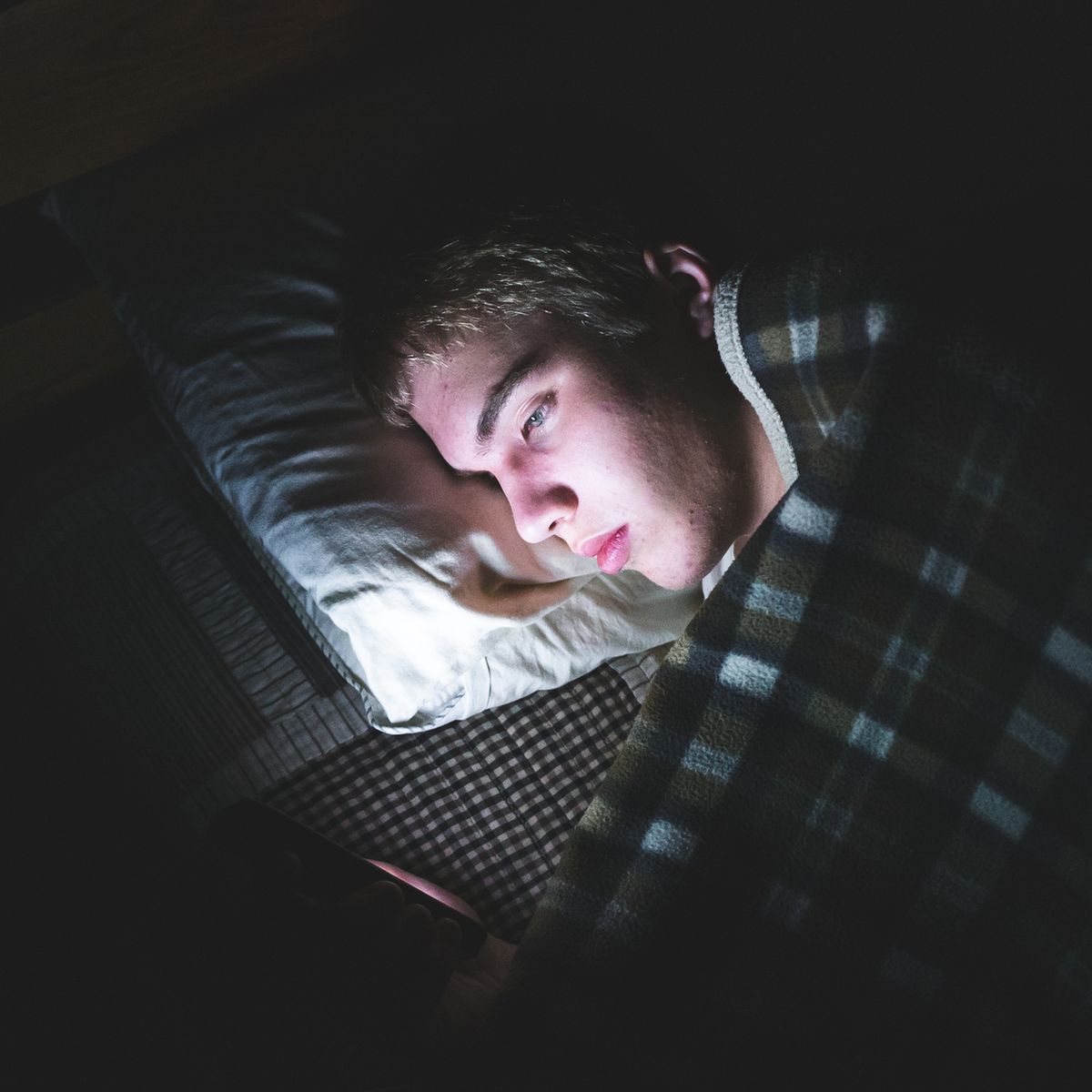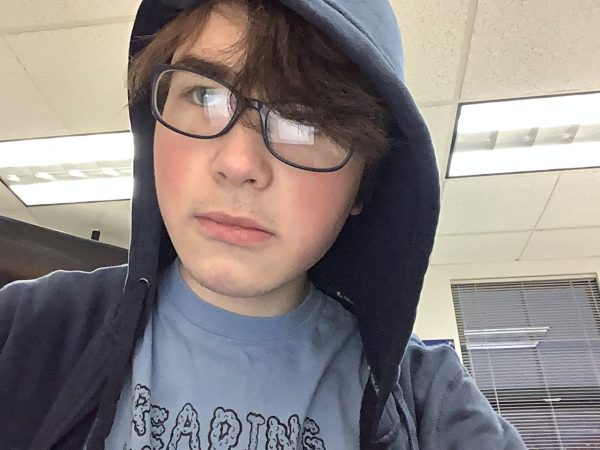When high schoolers get home from a long day of school or a stressful day of work, there are many things they may do to decompress. They may scroll through social media, play video games, etc. One common thing teenagers may do to decompress is watch a movie or TV show. Many of these movies and shows that are geared toward teens take place in high school. High school movies and high school TV shows. They are often full of sex, drugs, and violence. As with any kind of show or movie, there will always be cases where they will be sensationalized and melodramatic. Certain depictions of high school in media can feel so far away from my life and the lives that I observe within high school.
There have always been conversations about how accurate representations of teenagers in media are. In the 80s and 90s, many teen films such as the films of John Hughes like Pretty in Pink, Sixteen Candles, Weird Science, etc. were criticized and still are to this day for portraying teenagers as simple stereotypes and nothing more. These problems are often cited to have run into many of the popular teen TV dramas of the 2000s and 2010s, such as Dawson’s Creek, Riverdale, Teen Wolf, etc, and many would say these problems have continued into modern television such as Euphoria.
As Norwin senior Abby Corlazzoli puts it, “The skinny, blonde cheer captain and her meathead jock boyfriend who rule the school, etc.” There is a wide range of personalities, interests, and lifestyles when it comes to high schoolers, and how much they relate to a certain piece of media can easily vary, but on average, do teenagers feel accurately represented by their depictions within in media, or do they feel like these depictions showcase an over-the-top life far away from their own?
The average rating from Norwin students on how much they watch TV and movies on a scale from 1-5 was 3.3. The average rating on how accurately high school-based television and movies represented the teenage experience was 2.2 out of 5.
There are however shows and movies that Norwin students said they do relate to regarding their representation of the teenage experience, including The Breakfast Club, Dexter: Original Sin, Everybody Hates Chris, Gilmore Girls, Heartstopper, Heathers, High School Musical, Neon Genesis Evangelion, The Perks of Being a Wallflower, Superbad, etc. The piece of media that was answered the most was I Saw the TV Glow, a film about queer isolation, mainly within the transgendered experience, and the fear of coming out and accepting your identity. I believe this to be a testament to the importance of queer representation in media, especially when it comes to teenagers.
“In the 1980s, the classic John Hughes movie The Breakfast Club definitely resonated with those of us that grew up in that era, but is still relevant for teenagers today,” said Norwin teacher Mr. Paul Amic. “I think the best of that best movies of that genre explore aspects of teenage life in general. Since they are not specific to one era, they are still relevant to teenagers today.”
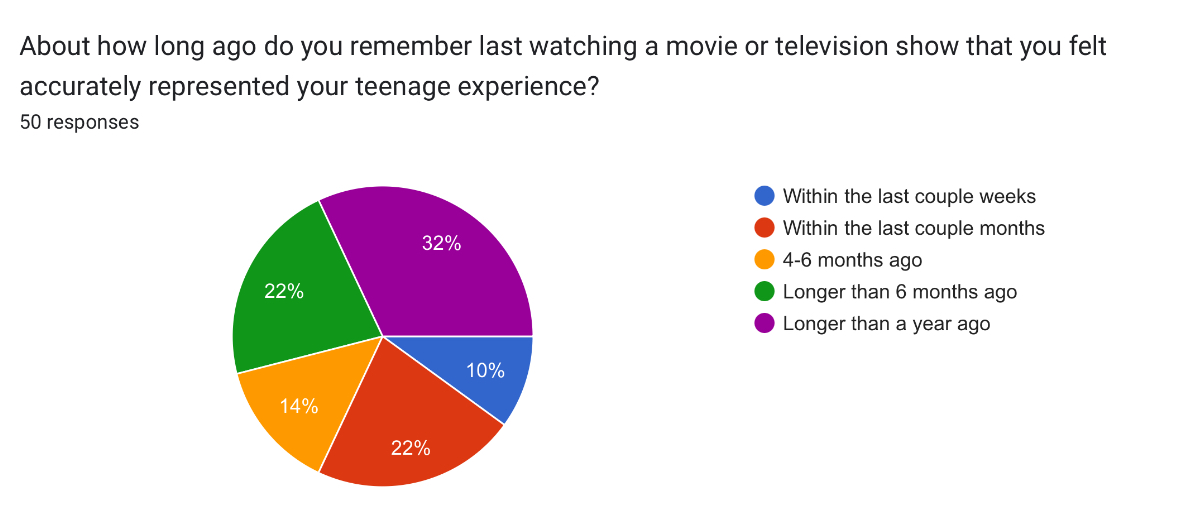 According to the poll, 58 percent of students said that they could not remember any films or television shows accurately representing their teenage and high school experience, and when asked when they last remembered seeing a piece of media doing so, 32 percent of students polled said “longer than a year ago,” with the second most popular answers being “longer than six months ago” and “within the last couple months.”
According to the poll, 58 percent of students said that they could not remember any films or television shows accurately representing their teenage and high school experience, and when asked when they last remembered seeing a piece of media doing so, 32 percent of students polled said “longer than a year ago,” with the second most popular answers being “longer than six months ago” and “within the last couple months.”
“The high school experience is either portrayed as a nightmare or a princess’s castle, and there really is no in-between,” said junior Sophia Tokay.
“I feel that the discrepancies between the actual and portrayed high school experiences arise from the lack of communication/understanding between age demographics/generations, a desire to glorify or present the high school experience in some way that it seems better than it is or more dramatic, and the uninteresting nature actual high school experiences actually have at times, as they would not work well to promote a dramatic, intriguing narrative,” said junior Noah Smith.
“I think it’s portrayed the way it is due to a number of predisposed assumptions and cliches that have been floating around the cinematic world for a long time now,” said senior Daelyn Gardner. “Films and series are now lacking originality and modern storytelling.”
“I think the high school experience is often portrayed the way it is because adults and directors working in the filming industry are not necessarily considering the emotions and feelings circulating through the minds of teens during this time period,” said freshman Malena DeJesus. “Times have changed—it is a new generation with different mindsets, different perspectives, different impacts, etc. Adults have grown out of their prime—they do not truly understand what high school is like in this day and age with different motivations and expectations.”
“None of them really represent it (the teenage experience) accurately, but I think that’s a good thing because they’re supposed to entertain not represent the high school experience,” said senior Sean Peterson.
It seems to be a common sentiment shared by high schoolers that high school isn’t accurately represented in media because if it were, it would be boring and uninteresting.
“It’s common to romanticize these years as a time of freedom and rebellion, even if reality is often far from that ideal,” said senior Null Kieffer. “It wouldn’t make good entertainment to show how much homework and doomscrolling the average teen does.”
“If they accurately portrayed what it was like to be a high schooler, no one would watch the movie and the producers wouldn’t make any money,” said senior Niko Kelly.
On average, Norwin students say they most relate to themes of friendship, love/relationships, mental health, and family within television and movies.
Students say that the aspects of the high school experience that are most often inaccurately represented are bullying, drug use, love/relationships, and violence.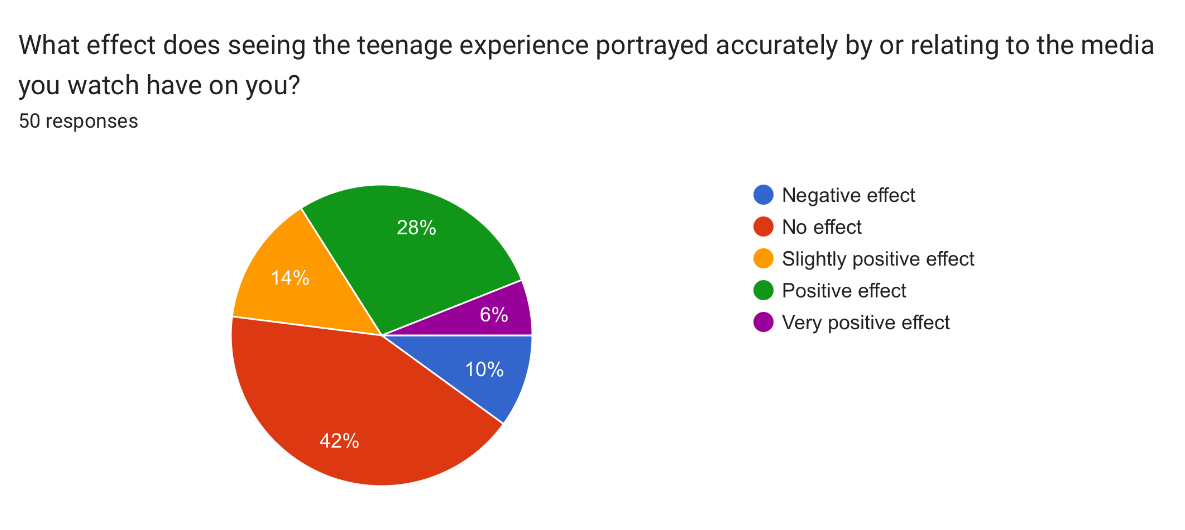
42 percent of Norwin students say that watching accurate portrayals of the teenage experience has no effect on them, which may lead many to ask, even if television and movies are inaccurately representing the high school and teenage experience, does it even matter?
There were, however, 6 percent of students who said viewing an accurate representation of their high school experience had a “very positive” effect on them and 28 percent who said it had a “positive” effect.
They may not be the majority, but there are many teenagers who are greatly affected by the feeling that their high school experience is seen by the movies and television they consume. And who knows, maybe if there were more examples of accurate representation of the teenage experience, more teenagers would realize how good that feels to see. So, will there be an improvement, where media involving high school and teenagers will start portraying these things in a way that will cause teens to recognize their own lives through the screen, or will it stay the same, altering the truth of these lives in order to tell more bombastic and interesting stories?


